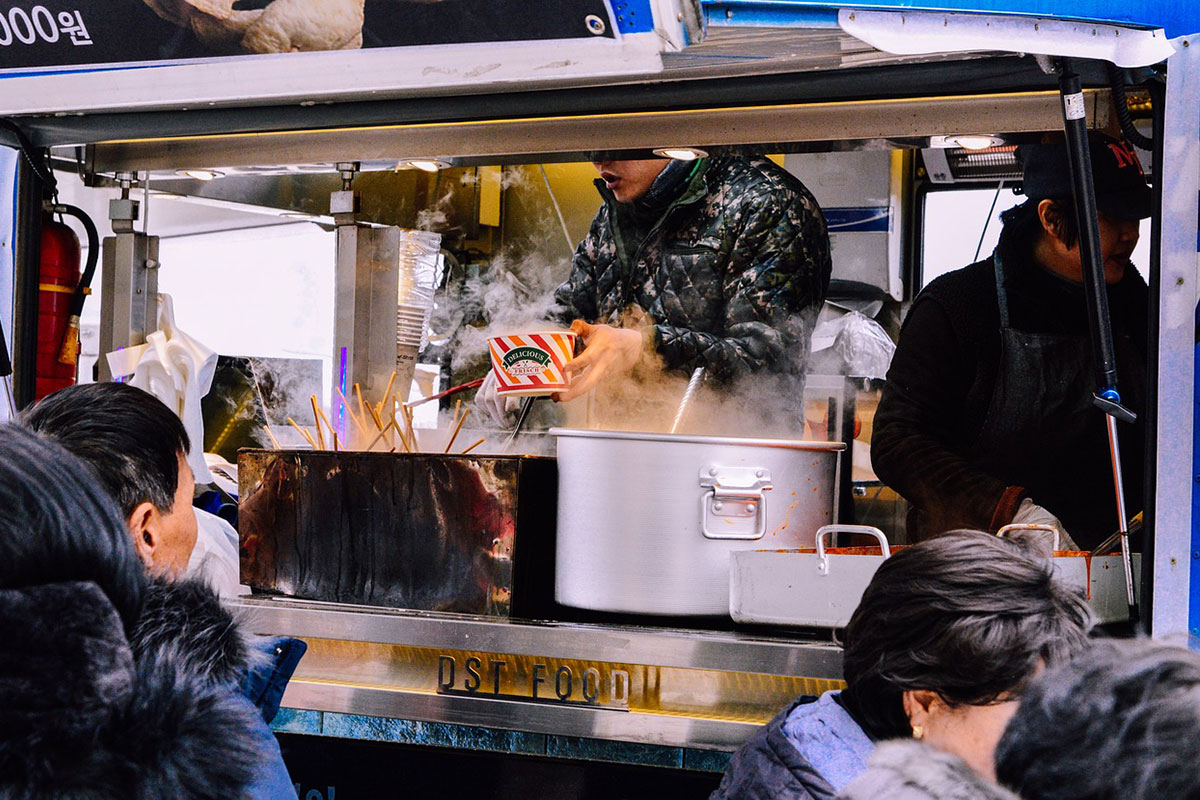In the urban tapestry of hustle and bustle, amidst skyscrapers and busy streets, food trucks have emerged as colorful, aromatic oases offering culinary delights. They are more than just vehicles serving food; they symbolize the evolving dynamics of urban dining, an intersection of culture, convenience, and creativity. The ethos of the food truck movement combines the age-old allure of street food with a modern, innovative spirit. As this culture continues to enthrall cities and towns globally, we delve deep to understand the reasons behind their burgeoning popularity.
Even in Cookeville, TN, the food truck phenomenon is evident. The town has witnessed a surge in these mobile eateries, with it seeming like a new food truck pops up every week. This booming trend is further accentuated by the recent establishment of the Trackside Food Truck Park, which promises to be a hub for culinary adventurers.
Reasons for the Rise of Food Trucks
The rise of food trucks is a phenomenon that speaks volumes about our changing tastes, lifestyles, and entrepreneurial spirit. As these mobile kitchens take over our streets and our palates, it’s evident that several factors play a pivotal role in their success.
1. Affordability and Low Startup Costs
Cost Comparison:
| Establishment Type | Average Startup Cost |
|---|---|
| Traditional Restaurant | $275,000 – $500,000 |
| Food Truck | $50,000 – $150,000 |
For budding chefs and culinary entrepreneurs, the financial barrier of entering the restaurant world can be daunting. Traditional restaurants not only demand considerable initial investments but also come with substantial recurring costs, like rent and utilities.
In stark contrast, food trucks offer a gateway to the culinary scene that’s more accessible and less financially straining. The minimized overhead costs of running a food truck, combined with the reduced initial investment, enable many to turn their gastronomic dreams into reality. This affordability doesn’t just benefit the owners; it often translates to more competitive pricing for customers, making it a win-win for everyone involved.
2. Flexibility in Location
Popular Food Truck Locations:
- Event spaces (weddings, festivals, etc.)
- Business districts during lunch hours
- Tourist spots and beaches
- University and college campuses
- Brewery and winery tours
The ability to move around freely is a luxury traditional restaurants don’t have. This mobility allows food truck owners to test different locations and zero in on spots where their offerings are most in demand. Moreover, they can capitalize on event-based opportunities, setting up shop at festivals, sports events, or concerts.
This dynamic capability means they can continually adapt to the market’s needs, ensuring their survival and growth. Whether they’re serving busy professionals in downtown areas during lunch or catering to the late-night crowd after events, food trucks can always be where the action is.
3. Rapid Menu Adaptability
Breakdown of Menu Changes:
| Factor | Frequency of Change |
|---|---|
| Seasonal Ingredients | Quarterly |
| Customer Feedback | Monthly/As needed |
| Trending Cuisines/Flavors | Bi-monthly/Quarterly |
One of the significant advantages food trucks have over brick-and-mortar establishments is their agility in adjusting their menus. Given their smaller scale, making changes based on seasonal availability, customer feedback, or emerging food trends becomes much more feasible.
This agility allows them to continually innovate, surprise, and delight their customers. It also means they can quickly discard what’s not working and double down on what is, ensuring they remain relevant and in tune with their customers’ evolving tastes.
4. Trendy and Novel Dining Experience
Food Truck Dining Statistics:
- Over 70% of millennials have eaten at a food truck.
- Cities with the most food trucks include Los Angeles, Portland, and Austin.
- The food truck industry has witnessed a 12% growth over the past five years.
In the age of social media, where sharing dining experiences is commonplace, food trucks offer a unique blend of novelty and nostalgia. The informal, often quirky settings, combined with innovative food offerings, make them a magnet for those looking for something different from the standard restaurant fare.
For many, especially the younger generation, food trucks are not just about food – they’re about the entire experience. The ambiance, the direct interaction with the chefs, and the sense of community around food trucks make them an attractive dining option.
5. Sustainability and Eco-Friendliness
Eco-friendly Measures Adopted by Food Trucks:
- Solar panels to power operations.
- Biodegradable or reusable serving ware.
- Sourcing local produce to reduce carbon footprint.
- Water-saving appliances and practices.
With growing awareness about environmental issues, businesses across sectors are feeling the pressure to adopt greener practices. Food trucks, with their smaller footprints, have been at the forefront of this movement in the culinary world.
Many food trucks are making concerted efforts to reduce their environmental impact, be it through the use of sustainable energy sources, minimizing waste, or sourcing local ingredients. For eco-conscious customers, this commitment to sustainability is not just commendable but often a decisive factor in choosing where to dine.
6. Collaborative Opportunities and Pop-Up Events
Common Collaborations:
- Breweries and wineries hosting food trucks.
- Joint events with local artisans or musicians.
- Participation in city-wide food truck rallies or festivals.
Collaboration is in the DNA of many food truck businesses. The inherent mobility and flexibility of food trucks make them ideal partners for various events and businesses. Whether it’s a local brewery looking to offer its patrons some gourmet bites, a music festival wanting to provide diverse food options, or a community event aiming to attract larger crowds, food trucks have become go-to collaborators.
These collaborations not only increase the reach and visibility of food trucks but also add value to the events or businesses they partner with, making it a mutually beneficial relationship.
